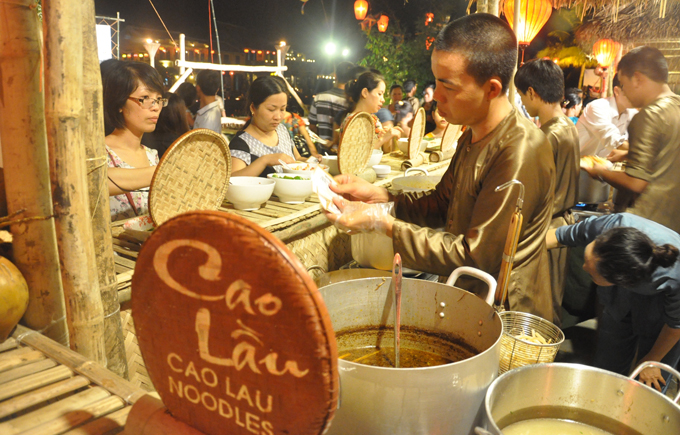The Vietnam Record Book Center recently filed “Cao lau,” Hoi An’s famous noodle dish, for recognition by the Asian Record Organization.
“Cao lau” is a delectable noodle dish served with shrimp, pork, a little broth, and seasonal herbs and vegetables. The noodle gets its signature yellow color by mixing it with the ash of a local plant.
According to the Vietnam Record Book Center, “cao lau” is unique to Vietnam and central Quang Nam province in particular.
“Mi quang,” another of Quang Nam province’s noodle specialties, has already been recognized by the Asian Record Organization.
Eight Vietnamese food, drink, and spice specialties from around the country, typically given as gifts, have recently earned recognition from the Asian Record Organization. These include “banh dau xanh Hai Duong” (cakes made of ground green beans), Thai Nguyen tea, Tra Bong cinnamon, Ngoc Linh ginseng, Buon Ma Thuot coffee, “banh trang phoi suong Trang Bang (dew-wetted rice papers), “banh phong sua dua Ben Tre” (Glutinous rice chapatti), and Phu Quoc pepper.
These records are the encouraging outcome of the Vietnam Record Book Center’s efforts to promote local specialties. The organization has successfully nominated 47 Asian records for local iconic dishes so far.



















































